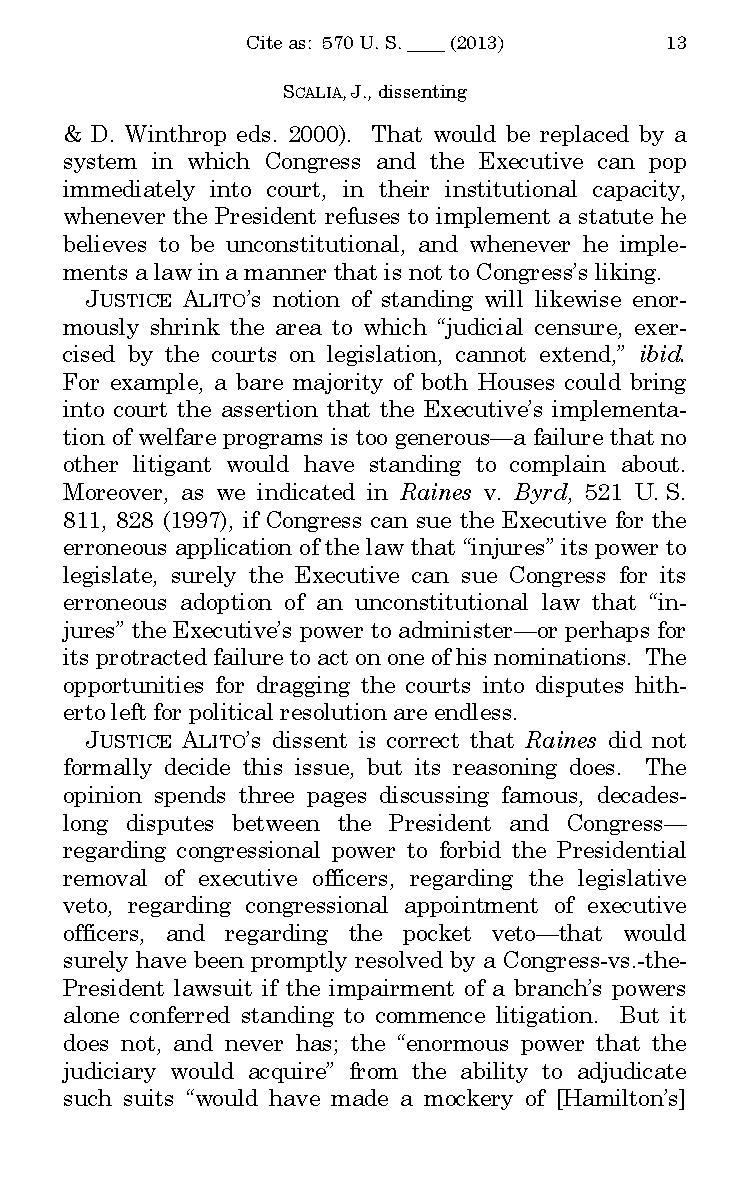& D. Winthrop eds. 2000). That would be replaced by a system in which Congress and the Executive can pop immediately into court, in their institutional capacity, whenever the President refuses to implement a statute he believes to be unconstitutional, and whenever he implements a law in a manner that is not to Congress’s liking.
Justice Alito's notion of standing will likewise enormously shrink the area to which "judicial censure, exercised by the courts on legislation, cannot extend," ibid. For example, a bare majority of both Houses could bring into court the assertion that the Executive's implementation of welfare programs is too generous—a failure that no other litigant would have standing to complain about. Moreover, as we indicated in Raines v. Byrd, 521 U.S. 811, 828 (1997), if Congress can sue the Executive for the erroneous application of the law that "injures" its power to legislate, surely the Executive can sue Congress for its erroneous adoption of an unconstitutional law that "injures" the Executive’s power to administer—or perhaps for its protracted failure to act on one of his nominations. The opportunities for dragging the courts into disputes hitherto left for political resolution are endless.
Justice Alito's dissent is correct that Raines did not formally decide this issue, but its reasoning does. The opinion spends three pages discussing famous, decades-long disputes between the President and Congress—regarding congressional power to forbid the Presidential removal of executive officers, regarding the legislative veto, regarding congressional appointment of executive officers, and regarding the pocket veto—that would surely have been promptly resolved by a Congress-vs.-the-President lawsuit if the impairment of a branch's powers alone conferred standing to commence litigation. But it does not, and never has; the "enormous power that the judiciary would acquire" from the ability to adjudicate such suits "would have made a mockery of [Hamilton's]
